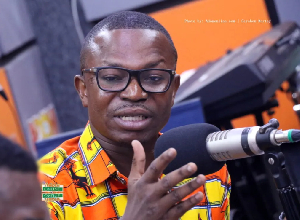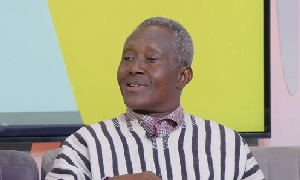Ghana’s new textbooks are quite instructive if you read between the lines This week, Vice President John Mahama launched the revised and expanded propaganda textbook, Green Book Chapter II. It highlights the ‘unprecedented achievements’ made under President Mills (though it fails to mention they are incidental to the current government). But behind the NDC government’s loud self-congratulatory parades is a Ghanaian public that is quietly questioning how our abundance of blessings has left us less connected to national opportunity than ever before.
The concerns that occupy Ghanaians are easy to discern in ten minutes at the market: rising unemployment (especially among the youth) and a rising cost of living; the falling standards of living and of education (especially at the JHS and SHS levels); collapsing healthcare and small businesses; low business and consumer confidence; and a national sense of hopelessness and despair because we have been here before and thought that we had shaken off such burdens.
To add insult to injury, the President and his orchestra of propagandists continue to tell us that the Mills-Mahama administration has achieved more than any other government in Ghana’s history and that Ghanaians have never had it so good. But the Better Ghana that they promised has become a bitter Ghana for the many and a better Ghana only for a privileged few.
So let’s take a closer reading of this textbook with an eye toward careful questioning of claimed successes. This can be quite instructive for all Ghanaian voters as we approach election season.
Claim: 13.7% recorded GDP growth, the highest in our history. Real Story: Mills inherited an economy that had discovered oil in commercial quantities under the guidance of the previous government. Outside of the oil sector—notorious for needing very few workers and generating few local jobs—our economy isn’t so rosy when not relying on high commodities prices.
Claim: “Ghana secured a $3 billion loan from the CDB… The single largest loan to Ghana, an evidence of confidence in the Ghanaian economy.” Real Story: Driven solely by the discovery of oil, the $3bn Chinese loan is tightly tied to Ghana’s share of Jubilee crude oil and revenues. So not only have we taken on significant debt, but we will make less from our future earnings from oil, even as prices soar.
Claim (proudly highlighted by the Vice President on Tuesday): “The country’s wage bill has more than doubled under the last 3 years from GH¢2 billion to GH¢5 billion. President Mills has, therefore, put money in the pockets of Ghanaian workers who are better off today than they were.” Real Story: President Kufuor managed to more than double the wage bill during every year of his 8 year term, and he did it without the benefit of oil revenue or record price increases in gold and cocoa. In 2000, the total wage bill was GH¢200 million. By 2008, it was GH¢2 billion – a 1,000% increase. This translates into an average wage bill increase of 125% for each of the 8 years under Kufuor vs. 39% for each of the 4 years under President Mills.
Claim: In 40 months, the NDC has created 1,734,978 jobs. Real Story: This would mean NDC has created 134,000 jobs since 2010, on top of the 1.6 million jobs the government said it created in their first 12 months. Further analysis shows this to be a stunning exercise in propaganda calculus.
News of the 1.6 million (phantom) jobs was broken by Okudzeto-Ablakwa, the Deputy Information Minister. His boss, not wanting to be outdone, invented details to substantiate the claim. President Mills was then challenged by a member of the press that is this unprecedented achievement were true, it should be listed in the top 50 achievements in the first Green Book. President Mills then gave the presidential seal to the lie that he created 1.6 million jobs in his first year—the same year that he froze public sector hiring and refused to pay contractors.
As comparison, US President Obama created the same number of jobs in his first year in office after introducing a stimulus package of $787 billion for a country that is more than 10 times bigger than Ghana. Obama cut taxes, offered grants and loans, and poured money into infrastructure projects to create “shovel-ready” jobs. Mills raised taxes and duties, reduced credit to the private sector, and raised the cost of borrowing—which led to lower business and consumer confidence (according to the Bank of Ghana surveys) and an inflated cost of contracts (which means fewer jobs for more money).
How can we really know how many jobs have been created or lost since the NDC took office in 2009? Going by the drop in the number of SSNIT contributors alone, one may be right in concluding that more jobs have been lost than created. In listing the areas where jobs have been created, the Green Book added NYEP (National Youth Employment Programme) and LESDEP (Local Enterprises and Skills Development Programme). It lists the number of people engaged under LESDEP as 10,000 and 100,000 people employed under NYEP. But when Mills took over, 110,000 people were employed under NYEP. The government laid them off and compiled an entirely new list of NYEP workers who were not ‘NPP boys’. But there are 10,000 fewer than in 2008. The LESDEP is its own scandal in the making. The budget said it was allocating GH¢60 million for LESDEP (run by the company that has boldly undertaken a new corruption-ridden, jobs-for-the-boys scheme for the ruling party, Zoomlion). So while school administrators complain that they have not received any capitation grants or secondary school subsidies for the current term, LESDEP found itself over-financed at GH¢84 million. GH¢8,000 for each of the 10,000 employed under LESDEP seems quite generous. But typical LESDEP applicants aspire for GH¢1,000 for their small scale enterprises. So where is the money going? Could this GH¢84 million, if properly applied, not create 6 times as many jobs? These numbers don’t add up.
We all know the biggest challenge facing the promising youth of our country is unemployment, and yet our government has broken its promise to create 1.6 million jobs in their first year in office. In fact, more businesses collapsed that year, and the government put a freeze on public sector employment.
Three years since Mills took office, a focus group of 10 Ghanaians, picked randomly from the streets in any part of the country (excluding the Castle) and asked what they think of the Mills-Mahama administration, have learned this to be the standard practice of this government. Seven out of ten identify our current leaders with: weak leadership, incompetence, corruption, broken promises, lies and propaganda.
President John Mills and Vice President Mahama are leaders that have lost touch with the concerns of the ordinary people. Four years ago they asked you, “Where is the money in your pockets?” But with their own pockets feeling fuller from Woyome and other deals, they aren’t going to ask you this anymore.
While debuting the new textbooks, Vice President Mahama announced that if re-elected, the NDC would spend $250 million to establish 200 community senior high schools (SHS) within the next four years. The question to ask is this: how many schools would $250m build under a government that is not corrupt? 500? Perhaps we should do what Uganda did many years ago – post a sign on each school proclaiming how much money from the central budget has been allocated to each school, so the local population can understand whether and outrageous amount of resources is being siphoned to other purposes. President Mills may very well go down in history as the worst constitutional leader Ghana has ever had because he has, through no effort of his own, been the most fortunate leader that Ghana has ever had since the First Republic, and thus the least aware of the responsibility of this bounty and the most able to waste the valuable opportunities presented to him and still sleep tonight. He inherited a more democratic country, a middle-income economy, record prices in Ghana’s main export of cocoa and gold, and the first oil revenues. But what has he done with all these blessings? Borrowed huge sums—$12 billion in foreign loans, leveraged against the oil—far more than all the previous governments put together managed to borrow since 1957. Ghana has become attractive for foreign investments through the vision and hard work of his predecessor, President Kufuor. No specific economic policy or programme initiated by the current administration has enhanced this image. Ghana has been blessed, but the blessings are being squandered by a leadership of unprecedented broken promises, incompetence and corruption. Ghanaian voters should learn now that it is easy to write pretty promises in a textbook and far harder to deliver on those promises before another four years pass us by.
gabby@danquahinstitute.org
Opinions of Friday, 13 April 2012
Columnist: Danquah Institute


















